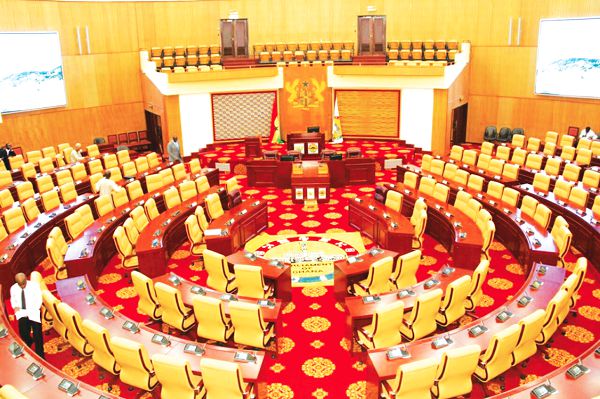The Ghana Standards Authority (GSA), an agency of government under the Ministry of Trade and Industry, plays an important role in growth of the national economy.
Established in August 1967, the GSA is the National Statutory body responsible for management of the nation’s quality infrastructure, embracing the three pillars of Metrology, Standardisation and Conformity Assessment (i.e. testing, inspection and certification).
The GSA’s mission is to contribute toward the growth of industry, protect consumers and facilitate trade through standards, metrology and conformity assessment.
The Authority derives its mandate from the Standards Decree, NRCD 173, 1973, as well as the Weights and Measures Decree 326 (1975), which makes it the custodian of weights and measures in Ghana.
As the national standards body, the GSA is responsible for development and publication of standards in line with international standards and in accordance with requirements detailed in the World Trade Organisation (WTO) agreement on Technical Barriers to Trade.
In addition, the Authority is also responsible for issuing the respective Ghana Standard Marks of Conformity for conformity assessment. All these are intended to enhance the quality infrastructure, protect public health and ensure safety of the general public.
The services rendered by the GSA are essential for economic growth.
Despite the critical role the Authority plays in the national economy, it is faced with numerous challenges which hamper its efficient and effective operation. Chief among them is its lack of legal power to impose fines and destroy sub-standard goods that have engulfed the local market.
The current law establishing the GSA, NRCD 173 of 1973, does not empower the Authority to punish or sanction businesses that manufacture or import sub-standard goods into the country.
This, coupled with the fact that the GSA has no storage facilities for such impounded non-conforming goods, means the market is swamped with goods which do not meet the required standards – with the attendant risks to health, lives and property. There is a need to dispose of them immediately upon confiscation to prevent them from getting back into the market.
Key industry players, watchers and stakeholders believe the NRCD 173, 1973 is outdated and needs to be revised to reposition the Authority as a strong and effective Standards Institution par excellence to support the country. Hence the Authority’s drafting of the new proposed Standards bill 2021, to amend the existing decades-old law that administers its operations.
The bill’s objective is to establish the GSA as the Authority responsible for the establishment and promulgation of standards, enforcement of conformity assessment programmes, and regulation of activities in respect of weights and measures in the country. It further seeks to revise the law relating to standardisation, conformity assessment and metrology.
It also strengthens and expands the Authority’s scope of operations to confront the challenges in relation to standards, conformity assessment and metrology-related programmes due to modernisation and technological development.
The Standards bill 2021 seeks to consolidate the Standards Authority Act, 1973 (NRCD 173) and the Weights and Measures Act, 1975 (NRCD, 326) into one enactment for effective administration of the GSA’s responsibilities.
The call for reviewing the NRCD 173 of 1973 has received backing and ringing endorsements from several quarters – including the business community and Members of Parliament, who have pledged their unflinching support for the review to give more power for the GSA to crack the whip.
A report of the Parliamentary Committee on Trade, Industry and Tourism, published on page 078 of the February 4, 2020 edition of the Hansard, recommended a review of the GSA’s legal mandate to incorporate the imposition of administrative fines as well as power to destroy sub-standard goods upon seizure. In the Committee’s view, this will serve as a deterrent to offenders.
The Committee also recommended that the proposed Standards bill should be considered by Cabinet expeditiously, and tabled before parliament without delay.
It was of the view that passage of the proposed Standards bill will give the GSA financial autonomy to effectively execute its mandate.
Even though some efforts have been made in the past to review the Authority’s laws, these are still yet to be realised. It is therefore heart-warming and refreshing to learn the bill has been gazetted; and that on Friday, November 12, 2021, Abu Jinapor, Minister of Lands and Natural Resources – on behalf of the Trade and Industry Minister, laid it before parliament for consideration and subsequent passage.
The bill was referred to the parliamentary select committee on Trade, Industry and Tourism four days later for stakeholders’ engagements, to seek their final opinions, inputs or otherwise.
The committee is expected to report back to the Speaker at the Plenary for second and third reading, subject to passage of the bill into an Act of Parliament, and for presidential assent.
Ghana’s quest to become the number-one trading hub in Africa could finish up being a huge joke of shocking proportions if issues of Standardisation and Conformity Assessment are put on the back-burner.










